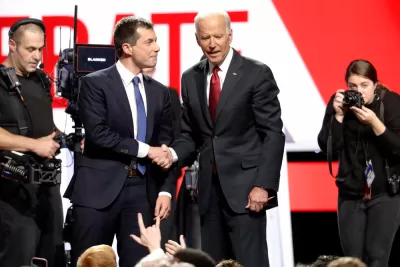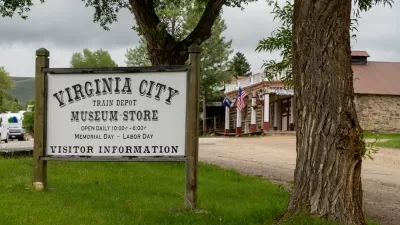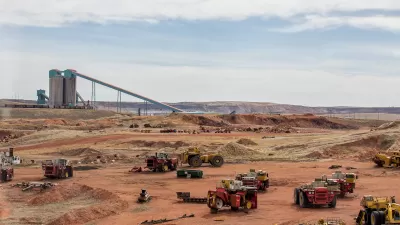Congress has an opportunity to acknowledge the racial inequity built into our failing infrastructure and to put into operation the promise of equity in Biden’s infrastructure plans.

The Biden presidency provides more than a glimmer of hope—and Congress has an incredible opportunity to join his vision— for an infrastructure package that will create generational investment in our communities, families, and children. Investing in housing, transit, and community institutions can be a promise and a commitment to begin to repair not just the damage of the previous presidency and the pandemic but also the cumulative impacts of other historical wrongdoings—such as redlining and segregation, income inequality, and environmental injustice.
The $2 trillion American Jobs Plan and its companion $1.8 trillion American Families Plan unveiled by Biden have lofty goals and are much needed: they include rebuilding 20,000 miles of roads, highways, and rail; confronting the climate crisis; curbing income inequality; improving community care facilities for seniors and people with disabilities; generating millions of new jobs; and making a focused set of investments in health care, child care, and education.
Congress has an opportunity it must not squander to acknowledge the racial inequity built into our failing infrastructure and put into operation the promise of equity in Biden’s infrastructure plans. To accomplish that we need to do two things: (1) invest in underinvested communities by pairing large-scale capital infrastructure and social investments with funding to develop a nimble and well-supported ecosystem that can translate those investments into real change in specific communities, and (2) guard against the kinds of unintended consequences that have beset previous initiatives.
Models for an Infrastructure Plan
Five historic, game-changing bills could provide a model for building community infrastructure and networks that increase community capacity to respond to pressing crises. All four created durable funding streams that allocated resources to communities of all sizes across the country . . .
FULL STORY: How to Get Racial Equity into Biden’s Infrastructure Plan

Planetizen Federal Action Tracker
A weekly monitor of how Trump’s orders and actions are impacting planners and planning in America.

Maui's Vacation Rental Debate Turns Ugly
Verbal attacks, misinformation campaigns and fistfights plague a high-stakes debate to convert thousands of vacation rentals into long-term housing.

San Francisco Suspends Traffic Calming Amidst Record Deaths
Citing “a challenging fiscal landscape,” the city will cease the program on the heels of 42 traffic deaths, including 24 pedestrians.

Amtrak Rolls Out New Orleans to Alabama “Mardi Gras” Train
The new service will operate morning and evening departures between Mobile and New Orleans.

The Subversive Car-Free Guide to Trump's Great American Road Trip
Car-free ways to access Chicagoland’s best tourist attractions.

San Antonio and Austin are Fusing Into one Massive Megaregion
The region spanning the two central Texas cities is growing fast, posing challenges for local infrastructure and water supplies.
Urban Design for Planners 1: Software Tools
This six-course series explores essential urban design concepts using open source software and equips planners with the tools they need to participate fully in the urban design process.
Planning for Universal Design
Learn the tools for implementing Universal Design in planning regulations.
Heyer Gruel & Associates PA
JM Goldson LLC
Custer County Colorado
City of Camden Redevelopment Agency
City of Astoria
Transportation Research & Education Center (TREC) at Portland State University
Jefferson Parish Government
Camden Redevelopment Agency
City of Claremont





























